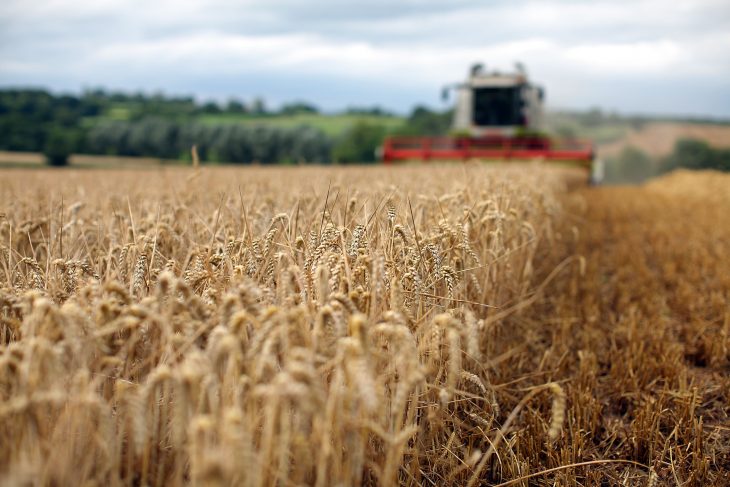Many farmers, asserted the Earl of Sandwich in a Lords debate last July, were now experiencing ‘regrexit’ – having voted to leave the EU they were now realising that the £3.2 billion worth of subsidies they had received from the EU in 2013 were now under threat. Or were they?
Whether any farmers really did suffer from pangs of regret last July, they will since have grasped that whatever happens to agricultural subsidies post-Brexit they might actually do rather well – not from collecting handouts but by growing food and selling it. Today, the Food and Drink Federation published its latest statistics on food exports. In common with so many economic figures published since last June they have defied predictions of doom. In the third quarter of 2016 (i.e. in the three months following the referendum), exports of food and non-alcoholic drink were 12.1 per cent higher, by value, than in the same quarter of 2015. Growth was especially strong in exports to non-EU countries – up 19.2 per cent compared with 9.6 per cent for EU countries. Exports to China were up 61.7 per cent, making that country one of our top 10 food export markets for the first time. Exports to Malaysia rose even more spectacularly – by 143 per cent. In other words, after so many years seeing much of our manufacturing drift off to the Far East, and having little to fill those shipping containers for the return journey once they have dropped off their cargoes of manufactured goods at Felixstowe we are developing promising markets for our food. Top exports are chocolate (£471 million worth in the first nine months of 2016), salmon (£402 million) and cheese (£356 million).
Of course, you can’t credit the prospect of Brexit for the healthy performance of food exporters. There is a more straightforward reason: the lower pound has made British products far more competitive on international markets. It is worth noting, however, that our leading food export – British-made chocolate – is something that the EU spent 27 years trying to ban. As soon as we joined in 1973 other EU countries lobbied to try to forbid British manufacturers from calling chocolate chocolate unless it was made exclusively from cocoa butter, not other vegetable fats. The case was not resolved until 2000, when British manufacturers finally won the right to call their product ‘family milk chocolate’ if exported to the rest of the EU.
That is a reminder of how EU regulation can stifle our food exports. Moreover, our international food markets are hampered by EU protectionism. Outside the EU, we will be free to do trade deals which open our food markets and in return give more opportunities to our exporters. Of course it will not all be positive for British farmers – those who currently benefit from protected markets may suffer. But overall, farmers and food producers can look forward to a far more entrepreneurial environment which rewards those who are prepared to adapt to the market. Who needs subsidies when you can earn your living instead?







Comments